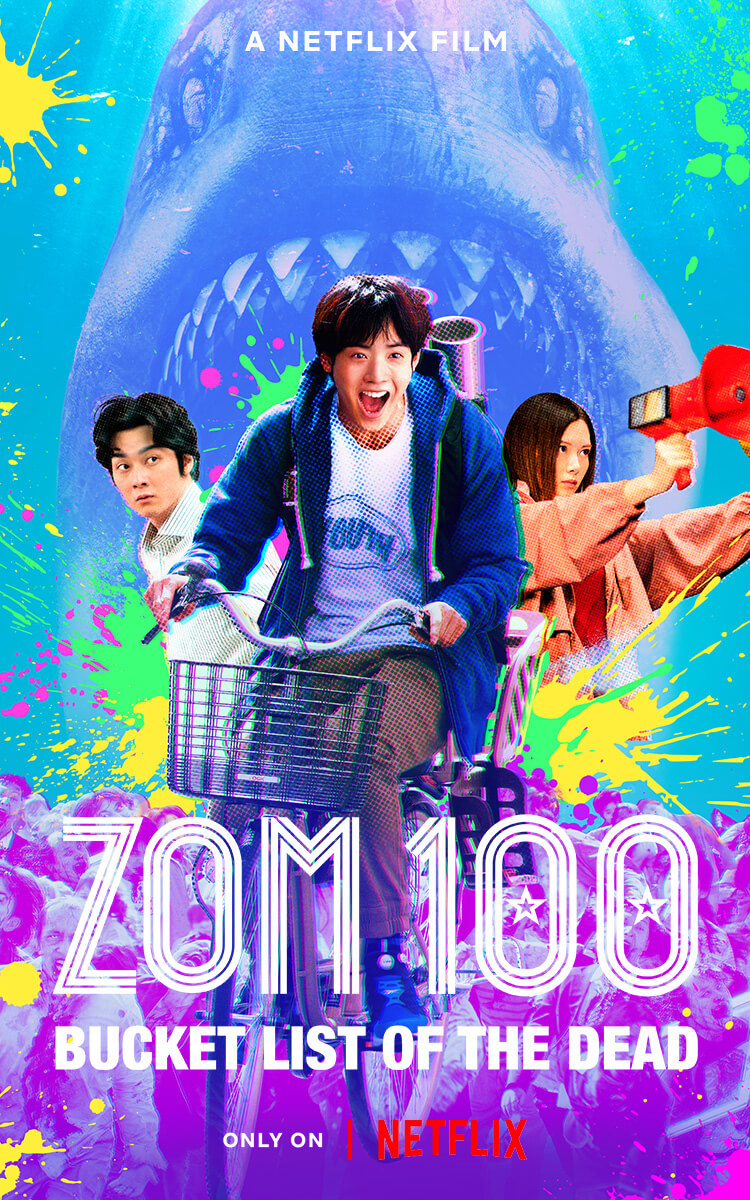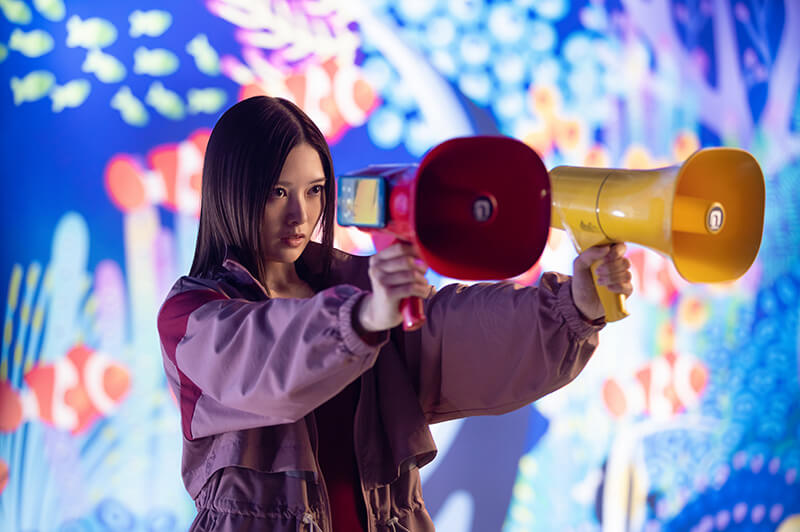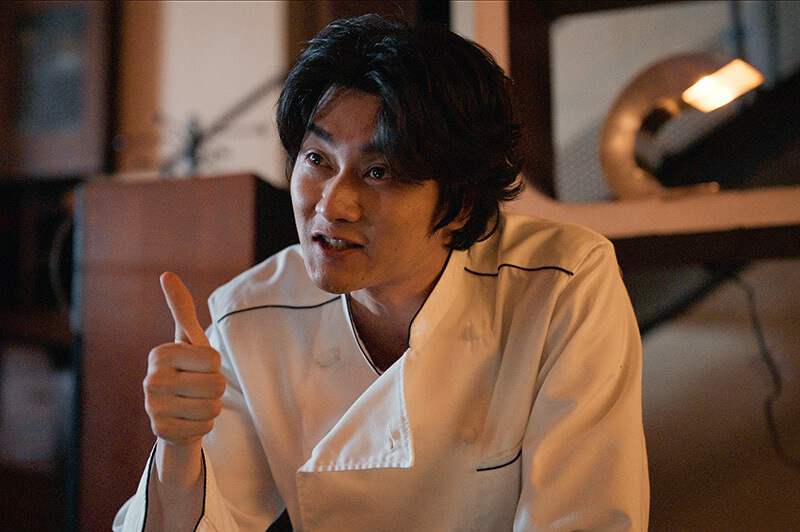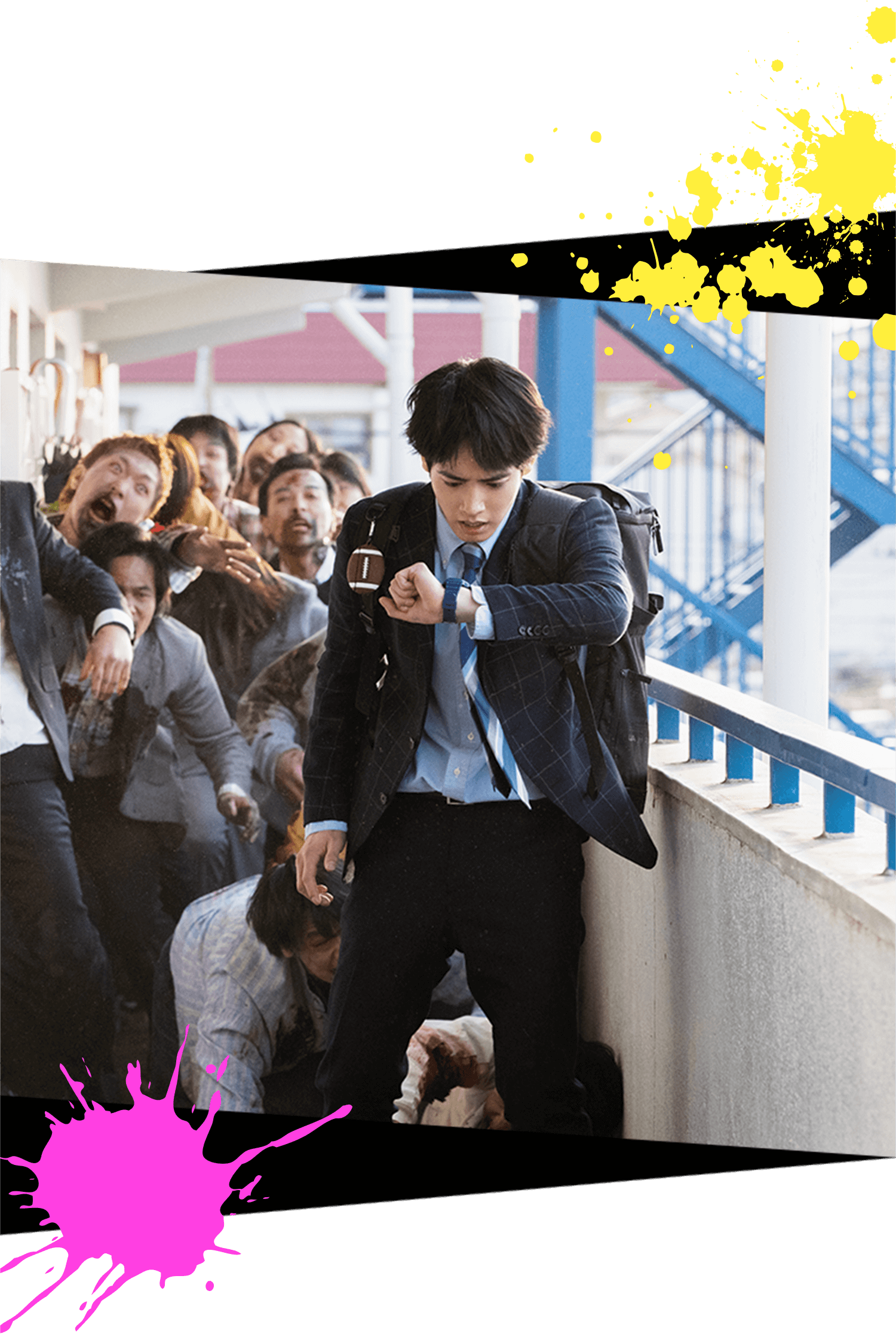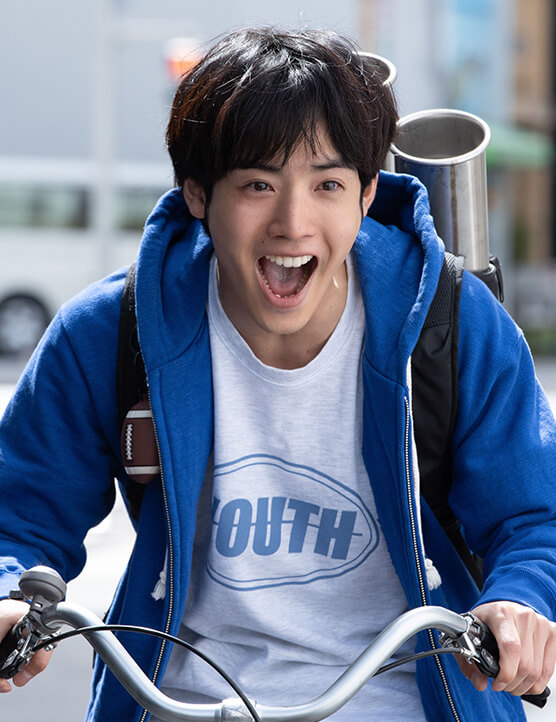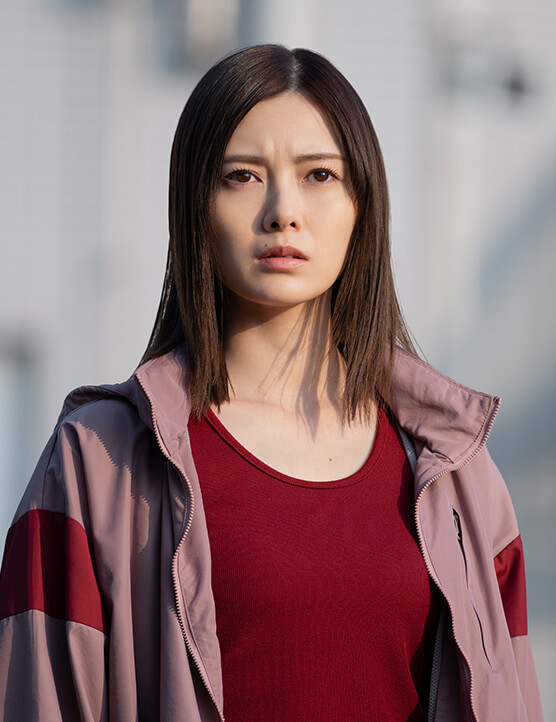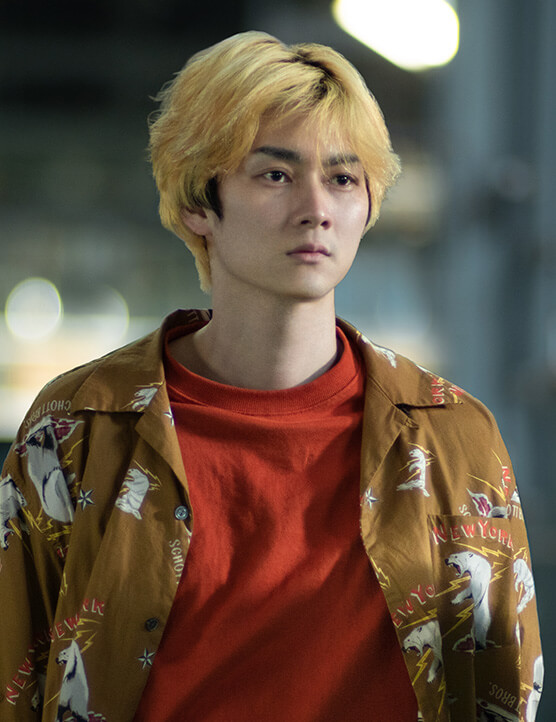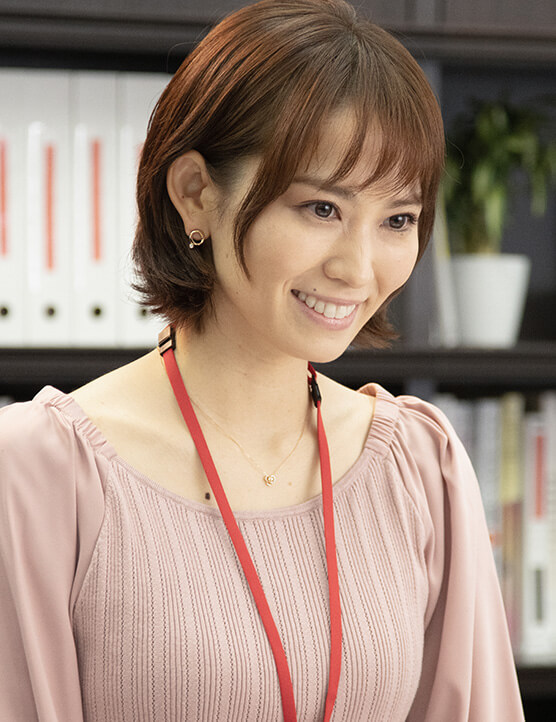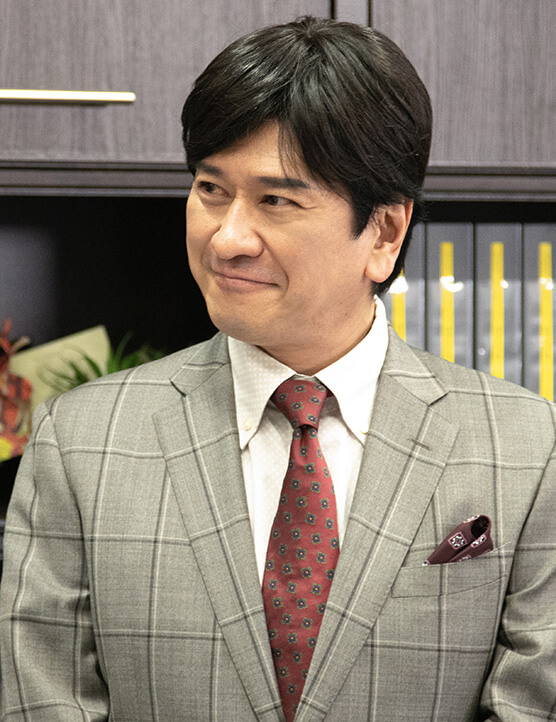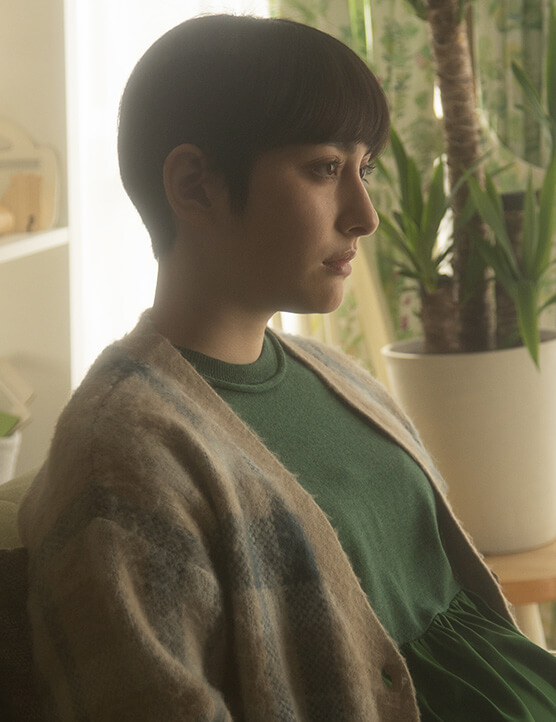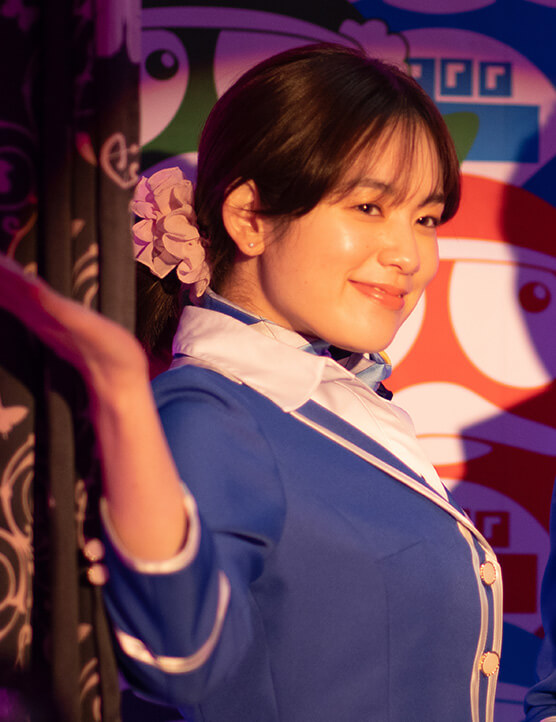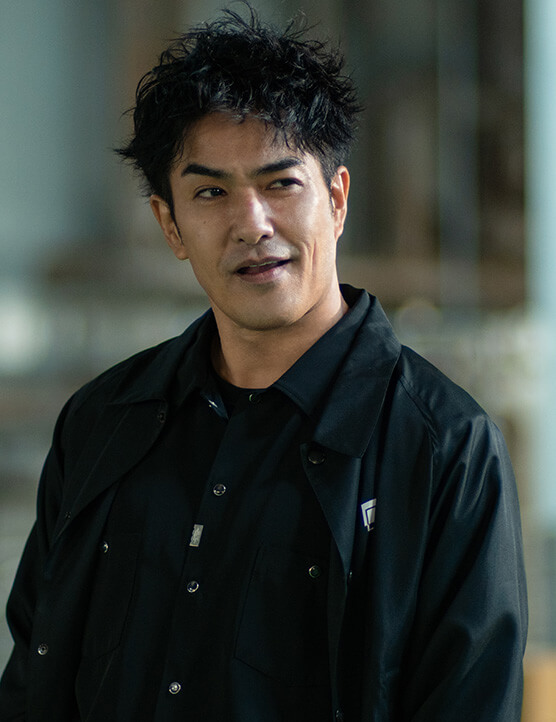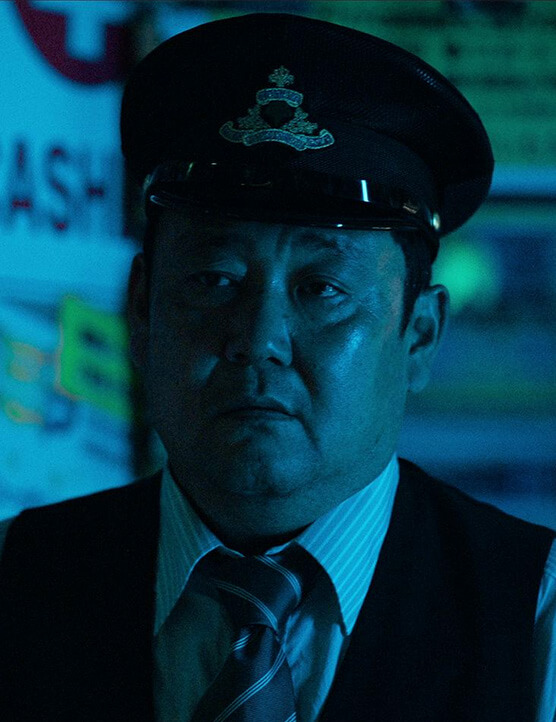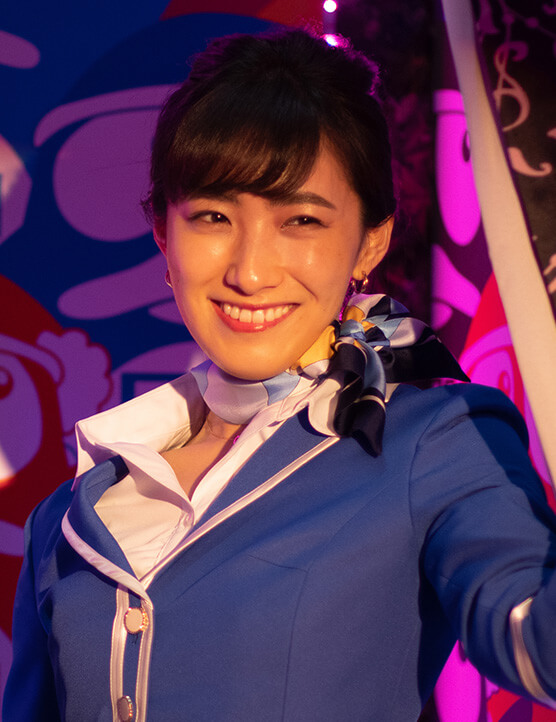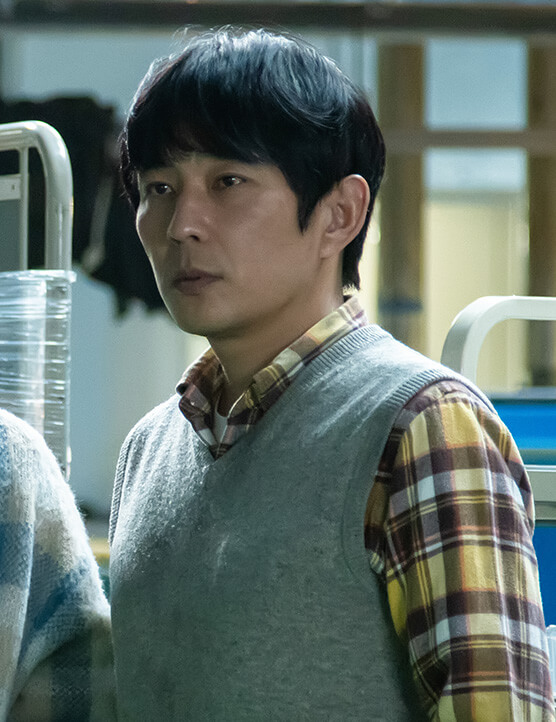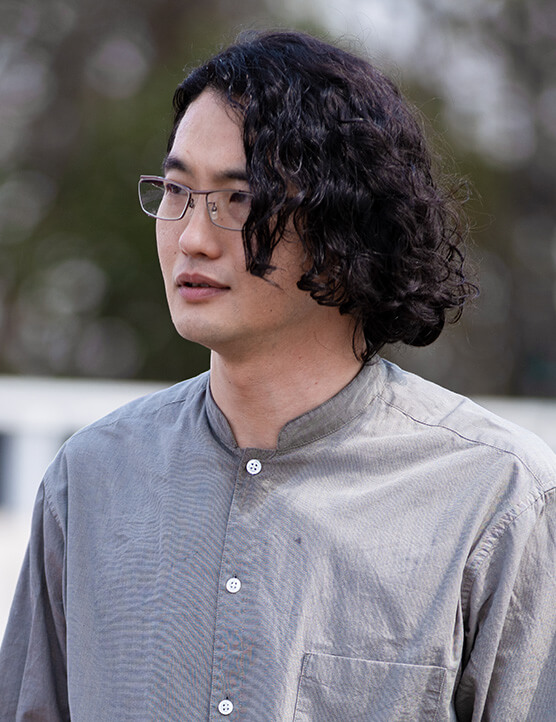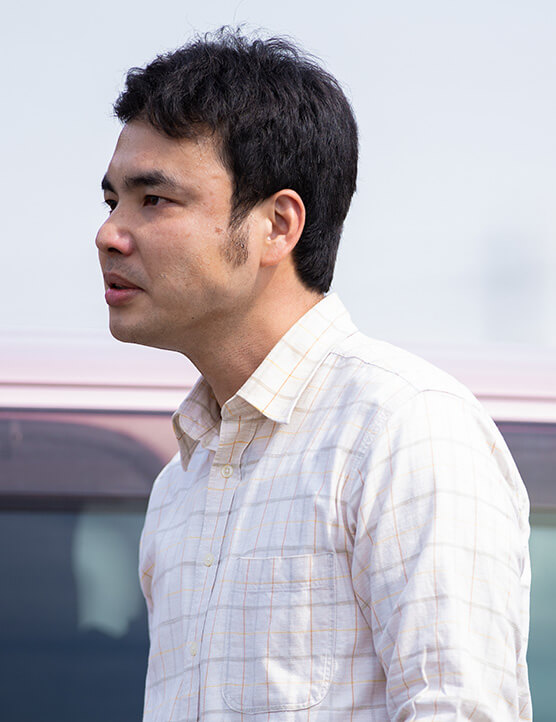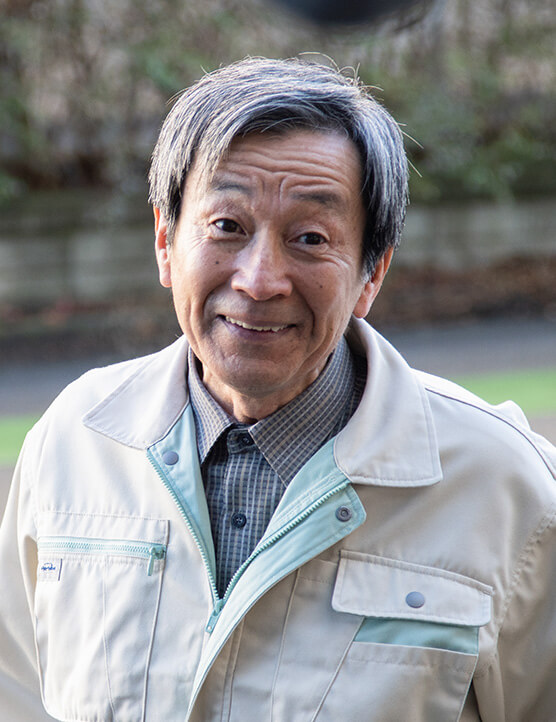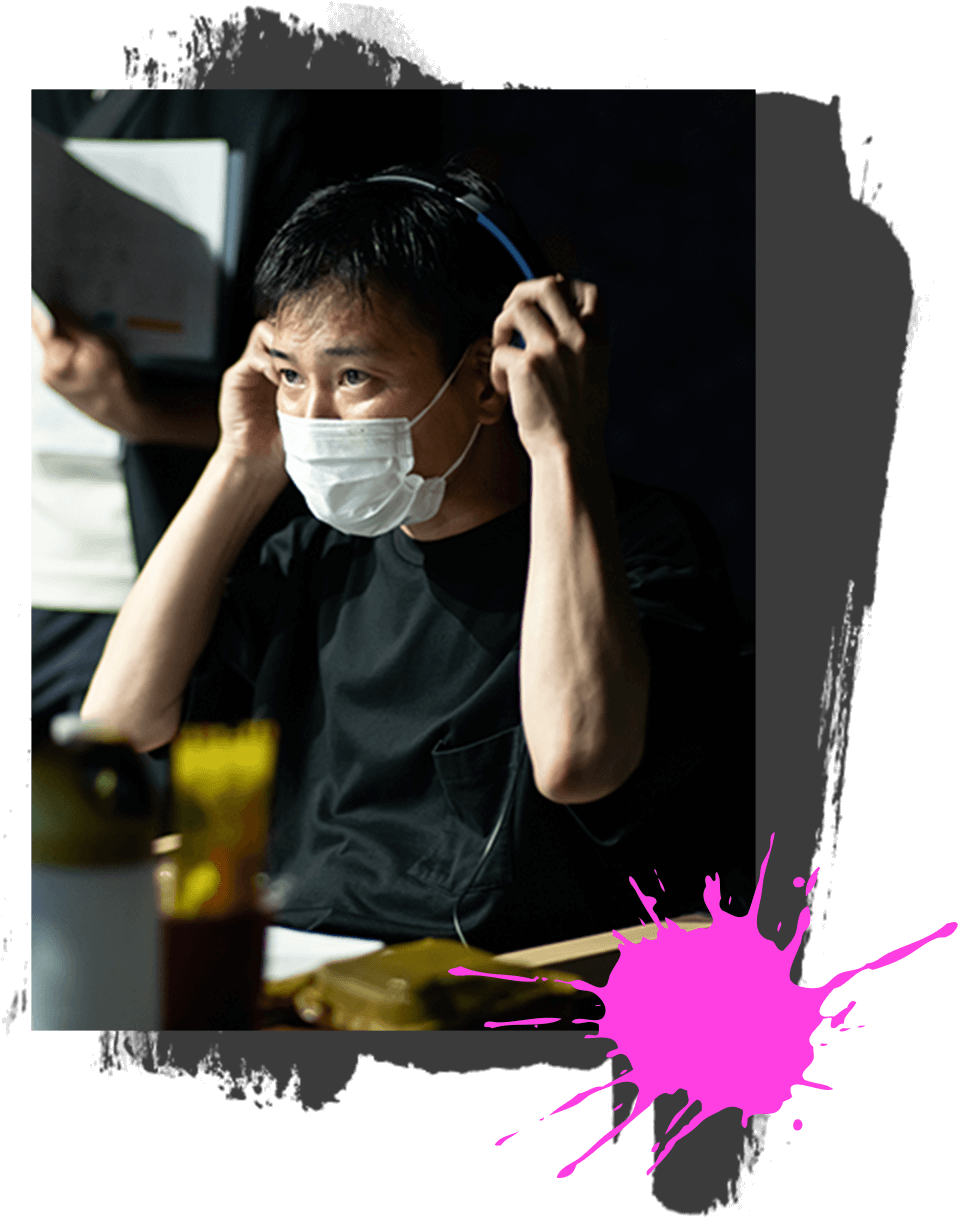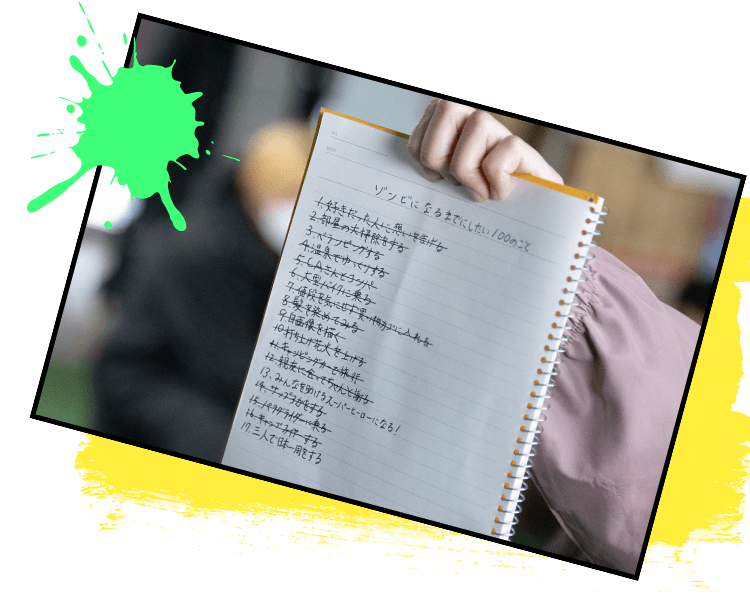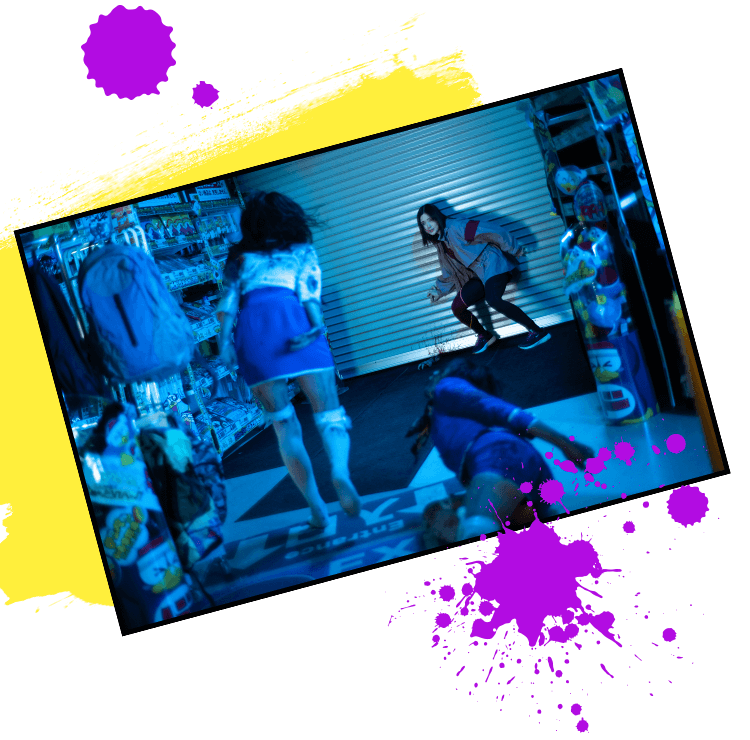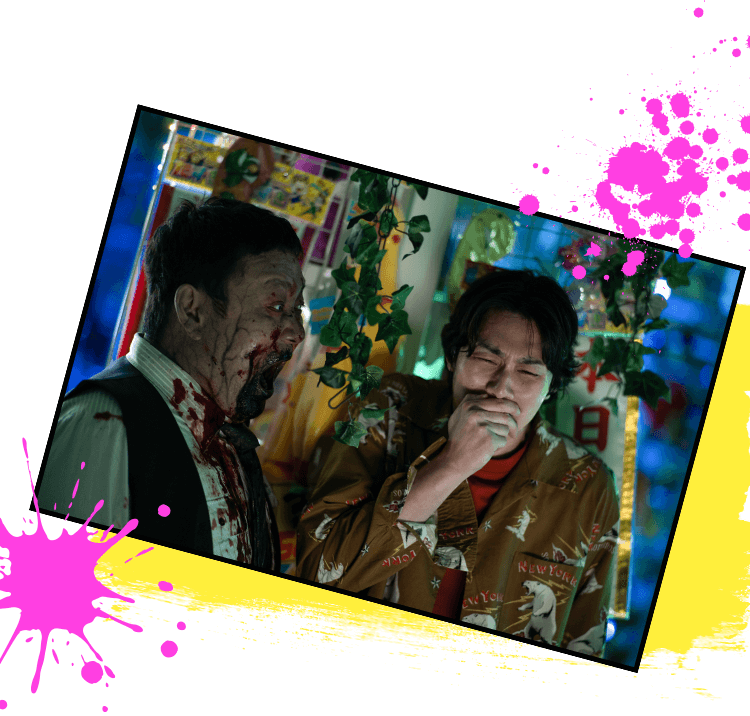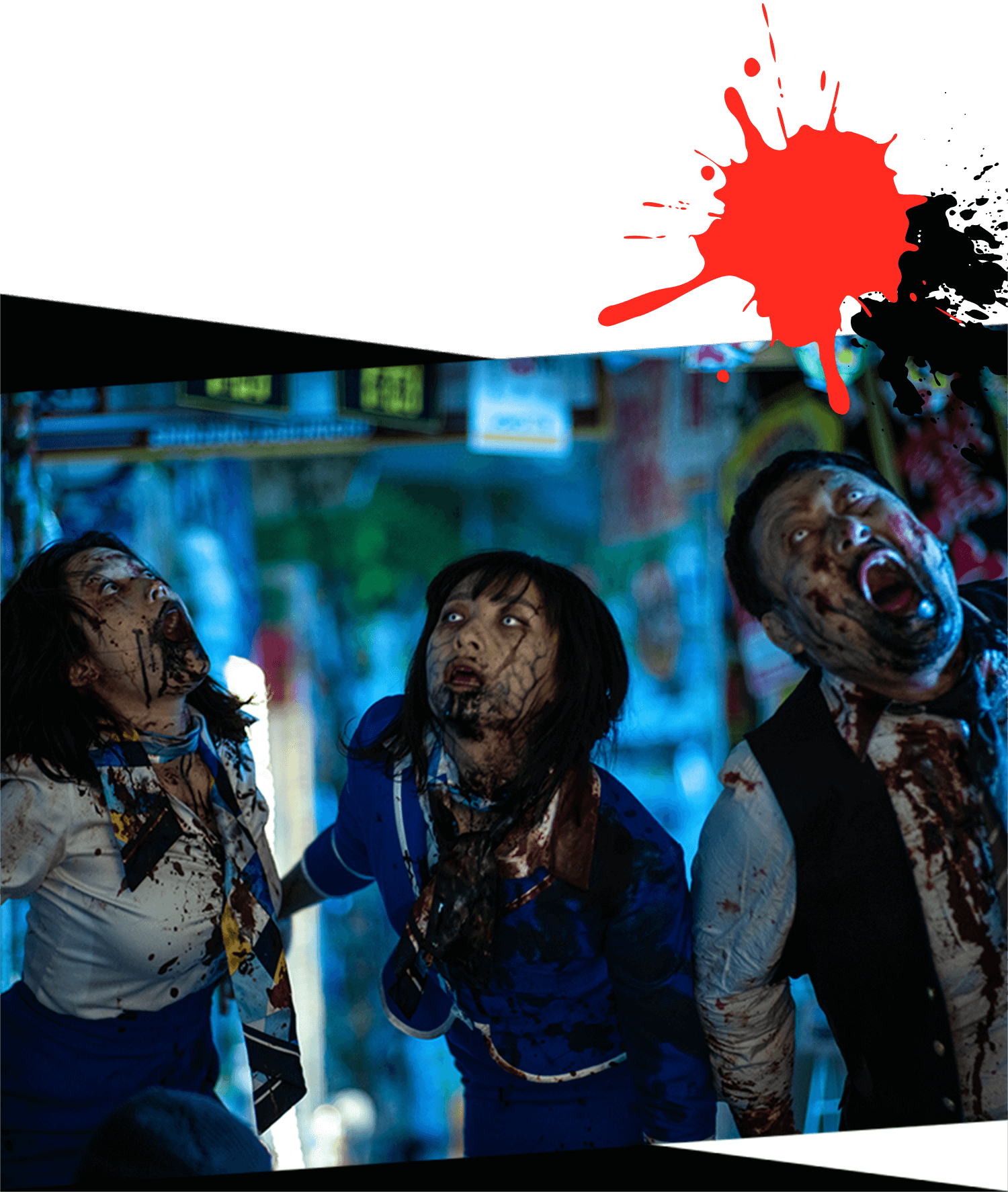The hit manga "Zom 100: Bucket List of the Dead" (currently serialized in Monthly Sunday GX) explores this universal theme that humanity has long pursued through creative expression, using a brand new setting that combines zombies, the pandemic, and employees who are treated as mere drones by exploitative companies.
Haro Aso, the author of the hit manga "Alice in Borderland," which was adapted into a live-action series by Netflix, teamed up with illustrator Kotaro Takata for this work, which found instant popularity from the start of its run in 2018. This manga is being adapted into anime by the animation studio Bug Films, which has produced hit works like "Komi Can't Communicate" and "Summer Time Rendering."This anime adaptation has started broadcasting from July 2023. Plus, a long-awaited live-action film adaptation is coming to Netflix.
This work of zombie entertainment from Japan that aims for global standards will be helmed by Yusuke Ishida, who served as third unit director for Shin Godzilla (2016). This multi-talented creator brings a fresh touch to this movie, having directed not only films but also concert performances and theme park attractions that utilize cutting-edge technology. The many dynamic scenes of characters being chased by hordes of zombies through Kabukicho, Shinjuku and the Ome Kaido road are a feast for the eyes.
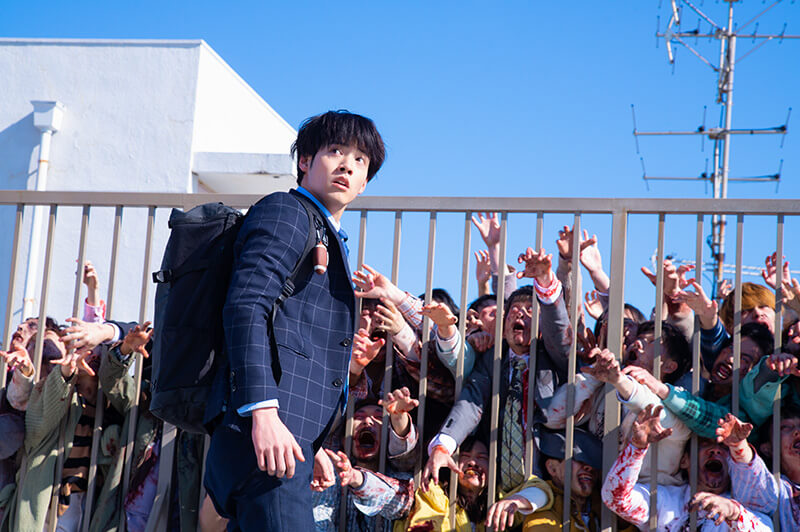
The protagonist, Akira, is played by Eiji Akaso, a popular and skilled young actor who is taking the entertainment world by storm. A young man filled with hopes and dreams, Akira is hired by a production company fresh out of college, but he quickly learns that his new employer is an exploitative company where he will be forced to become a worker drone, battered by brutal working conditions. However, when the world crumbles due to a zombie pandemic, Akira is invigorated with the will to live life to the fullest. Akaso's natural freshness makes this vibrant version of the protagonist feel upbeat and charming.
Mai Shiraishi plays Shizuka, who accompanies Akira on his journey. At first, she mocks the carefree attitude of Akira, who tries to enjoy each day to the fullest, but she begins to open up to him after he saves her life. Through Shiraishi's performance, viewers will witness this change from a person who is a bundle of nerves to one who has become more human.
Akira's old college friend and former football teammate, Kencho, is played by Shuntaro Yanagi, whose presence has been felt in many works, including the Netflix Series "Alice in Borderland." With his ability to pull off everything from comedy gags to action scenes, Yanagi has created a fun and reliable partner for Akira.
Standing in the way of these three is Kosugi, Akira's boss who abuses his position of power to harass him. The facial expressions of Kosugi, played by Kazuki Kitamura, as he berates Akira are incredible, easily persuading audiences that he is definitely not a boss you would want to work for. The cast is rounded out by Yui Ichikawa, Mayo Kawasaki Miwako Kakei and more to create a one-of-a-kind setting.
Unwilling to give up in the midst of a zombie apocalypse, Akira and his companions make a bucket list of things they want to do before becoming zombies and endeavor to make each of these dreams come true. Their unrelenting positive outlook gives us as viewers courage and inspiration as we spend each day not knowing what tomorrow may bring.


